‘Make every wound a weapon: Dissecting Sinwar’s poetic and powerful last will
By Maryam Qarehgozlou
The martyred Hamas leader Yahya Sinwar, in his poetic and powerful last will, called for the continuation of resistance against the Israeli occupation, urging Palestinians to carry the dream of Palestine in their hearts.
"I am Yahya, the son of a refugee who turned exile into a temporary homeland and transformed a dream into an eternal battle," reads the last will of the charismatic leader of the Gaza-based resistance movement and the chief architect of Operation Al-Aqsa Flood.
The poetic last will, originally written in Arabic and known as Wasieh, was translated by Palestinian activist and content creator PaliNada on TikTok.
"As I write these words, I recall every moment of my life—from my childhood in the alleys to the long years in prison, to every drop of blood spilled on this land," Sinwar wrote.
"I was born in the Khan Yunis refugee camp in 1962, at a time when Palestine was a torn memory and a forgotten map on politicians' tables," he hastened to add.
Sinwar, who was appointed the leader of the Hamas resistance movement in August following the assassination of his predecessor Ismail Haniyeh in Tehran, was already known for his remarkable battlefield heroics and sharp political acumen.
Despite his top rank and position in the Hamas resistance movement, he did not leave the battlefield and fought until his last breath, immortalizing himself with his defiant end.
He was killed in active combat with the occupation forces in Rafah city of southern Gaza on October 16, dressed in combat attire and holding an AK-47 rifle.
A key figure in the Palestinian resistance against decades of Israeli occupation, Sinwar was the mastermind of Operation Al-Aqsa Flood and a prime target for the Zionist occupation.
He had survived multiple assassination attempts before and after October 7, 2023.
Sinwar played a crucial role in coordinating resistance operations throughout Gaza, especially over the past year, as the Israeli regime launched a genocidal war against the besieged territory, killing over 42,700 Palestinians, most of them children and women.
Contrary to Israeli and Western propaganda that Sinwar was hiding in underground tunnels flanked by captives, photos and videos in the end proved otherwise. It Sinwar actively engaged in combat against Israeli forces, debunking previous assumptions about his location.
The viral footage from Sinwar’s final moments showed him wounded and immobilized as an Israeli tank opened fire but still refusing to retreat or surrender. The immense military force required to bring him down—a drone, tank, and aerial bombardment—has only further solidified his legendary status.
Sinwar's final will stands as a testament to his unwavering courage in the face of the occupation’s year-long genocidal war and daily massacres. He was fighting on behalf of his oppressed people.
WATCH: Yahya Sinwar, Iconic Hamas leader and flagbearer of resistance dies on the frontline
— Press TV 🔻 (@PressTV) October 18, 2024
Follow us on Telegram: https://t.co/B3zXG73Jym pic.twitter.com/UCgvFfksxC
It symbolizes his dedication to the Palestinian cause and solidifies his legacy as a fearless leader and defender of his people, who struggled for the liberation of Palestine until his last breath.
"I am a man whose life was woven between fire and ashes. I realized early on that life under occupation is nothing but a permanent prison," he wrote in his will, powerful and poetic.
From the beginning, Sinwar recognized the extraordinary nature of life in his homeland, understanding that being born there meant carrying an indestructible resolve.
He knew the path to freedom would be arduous, but he remained undeterred, ready to face challenges including the likelihood of death. He was always prepared for any eventuality.
"From my earliest days, I knew that life here is not ordinary and that whoever is born here must carry an unbreakable will, knowing that the road to freedom is long," he added.
Sinwar's commitment began in his youth, challenging the occupier with a stone, knowing that such defiance was the first step in response to a world indifferent to Palestinian suffering.
"My will to you starts from that child who threw the first stone at the occupier, who knew that stones are the first words we speak in the face of a world that remains silent to our wounds,” he wrote.
"I learned in Gaza's streets that a person is not measured by the years of their life, but by what they give to their homeland. So, my life was prisons, battles, pain, and hope.”
Sinwar faced his first imprisonment in 1988, sentenced to life, yet remained fearless and incredibly strong. In the confines of those dark cells, he found hope, seeing windows to a brighter future.
His message was clear: do not fear imprisonment, for it is but one step on the long and challenging road to liberation of the occupied territories and liberation of the holy al-Quds.
"I entered prison for the first time in 1988 and was sentenced to life, but I never knew fear. In those dark cells, I saw in every wall a window to a distant horizon, and in every bar, a light illuminating the path to freedom,” he wrote in his last will.
"In prison, I learned that patience is not just a virtue, but a weapon—a bitter weapon, like drinking the sea, drop by drop. My will to you: do not fear prison, for it is part of our long journey to freedom.”
Days in Israeli prisons taught him that freedom is “not just a stolen right, but a concept born from pain and shaped by patience.”
Upon his release in the 2011 Wafa al-Ahrar prisoner exchange, Sinwar returned to the battlefield stronger and more resolute, with an even deeper conviction in the Palestinian cause.
Explainer: Who was Yahya Sinwar, the charismatic leader of Hamas?
— Press TV 🔻 (@PressTV) October 20, 2024
Follow Press TV on Telegram: https://t.co/B3zXG74hnU pic.twitter.com/LeRlbZkQ7o
"When I was released in the Wafa al-Ahrar prisoner exchange deal in 2011, I did not emerge the same. I emerged stronger, with a greater belief that our struggle is not a passing phase but our destiny, one we carry until the last drop of our blood,” he wrote.
Sinwar urged Palestinians to stand firm in the face of adversity. He recognized the enemy's desire for them to relinquish resistance and engage in endless negotiations, but he urged them to remain steadfast and refuse to compromise.
In his eyes, the enemy feared Palestinian determination and perseverance more than any weapon.
“My will is for you to remain steadfast, clinging to your dignity and to the dream that never dies. The enemy wants us to abandon resistance, to turn our cause into endless negotiations, but I say to you, do not negotiate over what is rightfully yours,” reads the last will.
“They fear your steadfastness more than your weapons. Resistance is not just a weapon we carry, but it is our love for Palestine in every breath we take. It is our will to remain firm despite the siege and aggression.”
The martyred leader in his will also cautioned fellow Palestinians against squandering their legacy in political maneuvers or diplomatic games, emphasizing that their ultimate goal was to fulfill the mission started by the first generation of freedom fighters.
"My will is for you to remain loyal to the blood of the martyrs. They paved the road to freedom with their blood, so do not waste those sacrifices in political calculations or diplomatic games."
“My will is for you to remain loyal to the blood of the martyrs, to those who have left us this thorn-filled path, they paved the road to freedom with their blood, so do not waste those sacrifices in the calculations of politicians or the games of diplomacy,” he wrote.
“We are here to continue what the first generation began, and we will not stray from this path, no matter the cost. Gaza was and will remain the capital of steadfastness, the heart of Palestine that does not stop beating, even if the world closes in around us.”
Upon assuming leadership of Hamas in Gaza in 2017, Sinwar understood his role as an extension of the resistance movement that had been forged with stones and sustained with rifles.
He recognized that the path to freedom would inevitably demand sacrifices. However, Sinwar underscored that surrender would carry an even greater cost. He believed that no force could uproot a nation that had chosen to stand its ground and fight for its right to exist.
“When I took over the leadership of Hamas and Gaza in 2017 it was not just a transfer of power, but a continuation of the resistance that began with stones and continued with the rifles,” he stated.
“Every day, I felt the pain of my people under the siege, and I knew that every step we take toward freedom comes at a price, but I tell you, the cost of surrender is much greater. So hold on to the land as firmly as roots cling to the soil, for no wind can uproot a people who have chosen to live.”
Speaking to Press TV, Khaled Qaddoumi, Hamas representative in Iran, said that Hamas leader Yahya Sinwar lived like a star and sacrificed his life for his nation and homeland.
— Press TV 🔻 (@PressTV) October 21, 2024
Follow us on Telegram: https://t.co/B3zXG74hnU pic.twitter.com/W5QooZV3o3
During the Al-Aqsa Flood battle, Sinwar saw himself not as a leader of a specific group or movement but as the embodiment of every Palestinian yearning for freedom.
For Sinwar, the Al-Aqsa Flood battle was not merely a physical confrontation but a testament to the indomitable spirit and unwavering will of the Palestinian people in their fight for liberation.
“In the Al-Aqsa Flood battle, I was not the leader of a group or movement, but the voice of every Palestinian dreaming of liberation. I was driven by my belief that resistance is not just an option but a duty,” reads the last will.
“I wanted this battle to be a new chapter in the book of the Palestinian struggle, where the factions unite and everyone stands in the same trench against an enemy that never distinguishes between a child and an elder or between stone and a tree. The Al-Aqsa Flood was a battle of spirits, before it was a battle of bodies and of will, before it was a battle of weapons.”
Sinwar’s enduring legacy, as he saw it, was not a testament to his individual achievements but rather a collective tribute to the aspirations and sacrifices of the Palestinian people.
His final message was one of hope and perseverance, reminding his people that resistance was not a futile endeavor but a life lived with honor and dignity.
“What I leave behind is not a personal legacy, but a collective one for every Palestinian who dreamed of freedom, for every mother who carried her son as a martyr on her shoulder, for every father who wept bitterly for his daughter who was killed by a treacherous bullet,” he wrote.
“My final will is that you always remember that resistance is not in vain, nor is it just a bullet fired but a life lived with honor and dignity. Prison and siege have taught me that the battle is long and the road is hard, but I also learned that people who refuse to surrender create miracles with their own hands.”
Sinwar warned against expecting fairness from a world that had repeatedly turned a blind eye to Palestinian suffering. Instead, he urged his people to embody the justice they sought.
His final will represents an unwavering call to action: never relinquish the right to defend yourself and remember the sacrifices of martyrs, and refuse to compromise on their dream of freedom.
“Do not expect the world to be fair to you, for I have lived and witnessed how the world remains silent in the face of our pain. Do not wait for fairness, but be the fairness. Carry the dream of Palestine in your heart and make every wound a weapon and every tear a source of hope,” he wrote.
“This is my will. Do not lay down your weapons. Do not throw away stones. Do not forget your martyrs, and do not compromise on a dream that is rightfully yours. We are here to stay in our land, in our hearts, and in the future of our children.”
Iranian murals honor Yahya Sinwar, immortalizing his fight for freedom@gisoumisha reports from Tehran. pic.twitter.com/ysNEwxiYeE
— Press TV 🔻 (@PressTV) October 21, 2024
Sinwar’s final words entrusted the Palestinian people with the stewardship of their homeland—a land he loved until his last breath.
He urged them to carry the weight of their dreams with unwavering resolve, ensuring that his own sacrifices would serve as a foundation for future generations to rise from the ashes, stronger than ever.
“I entrust you with Palestine, the land I loved until death and the dream I carried on my shoulders like a mountain that never bends; if I fall, do not fall with me, but carry the banner that never falls and make my blood a bridge for a generation that rises from our ashes stronger,” he wrote.
Sinwar reminded his people that their homeland was more than just a story; it was a living legacy that must be defended and nurtured.
He implored his people to remain a relentless force, refusing to rest until the world recognized their rightful claim to their land and acknowledged their humanity beyond mere statistics in the news.
“Do not forget that the homeland is not just a story to be told, but a reality to be lived. And with every martyr born from this land, 1000 more resistance fighters are born, if the flood returns, and I am not among you know that I was the first drop in the waves of freedom, and I lived to see you continue the journey,” the martyred Hamas leader remarked.
“Be a thorn in their throat, a flood that knows no retreat and do not rest until the world acknowledges that we are the rightful owners and that we are not just numbers in the news.”
Following the release of the English translation of Sinwar’s final testament, social media users took to various platforms to share and discuss the powerful words of the legendary Hamas leader.
“Sinwar’s will is translated to English. This will inspire generations across the real free world. Not the imperialist, hypocritical liberal free world,” wrote Raed Behbehani, an ophthalmologist based in Kuwait, in a post on X, formerly Twitter.
“Yahya Sinwar’s will and testament is the most beautiful & heart-wrenching thing I’ve ever heard. I’ve felt so many emotions for someone I’ve never met. The pride I feel to have even existed in the same lifetime as him & the utter sadness I feel at his martyrdom is indescribable,” wrote another user on X.
Human rights activist Natalie Strecker also in an X post wrote that after reading Sinwar’s “poetic” will she realized how Western societies’ understanding of global events is often shaped by ruling class narratives propagated through mainstream media:
“The narrative of the ‘savage, brown, terrorist’, who must be subdued for ‘civilization’s’ sake.”
Bollywood actress and activist Swara Bhaskar also took to X to express her admiration for Sinwar.
“I didn’t know anything about #yahyasinwar till I saw the footage of his last moments & assassination by the Zionist State and now I think he’s a revolutionary hero,” she wrote.
“Listen to his will, his last words and tell me that you are unmoved.”
Iran urges IAEA Governors Board to oppose E3’s anti-Iran resolution
Nov. 20: ‘Axis of Resistance’ operations against Israeli occupation
VIDEO | Iran celebrates National Hero Day, honoring Martyr Qassem Soleimani
VIDEO | Ethiopia-Somalia tensions worsen following port deal signed between Addis Ababa, Somaliland leaders
VIDEO | Iran commemorates martyrs on National Heroes Day
VIDEO | Press TV's news headlines
VIDEO | Iran-IAEA relations
Senior diplomat vows Iran will serve ‘decisive, immediate’ response to potential IAEA resolution


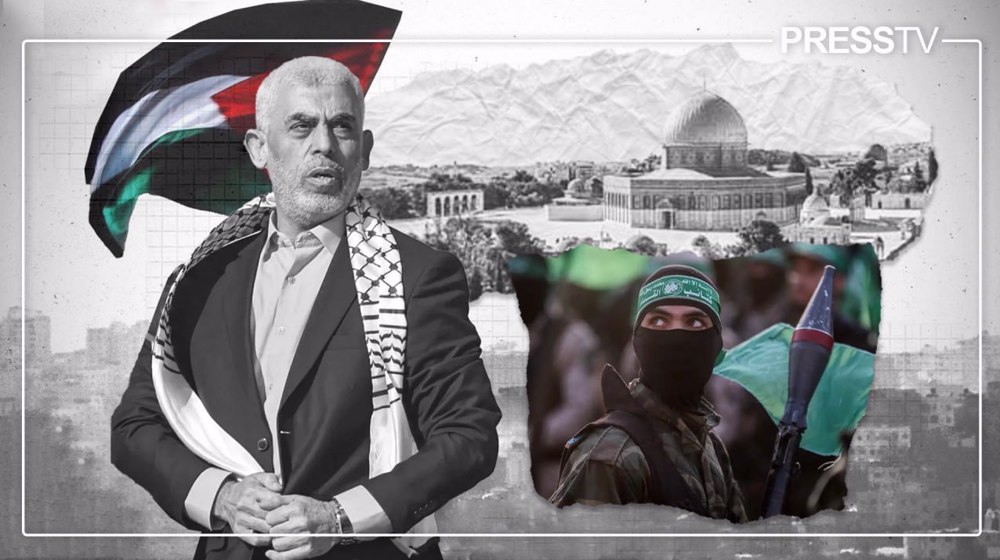


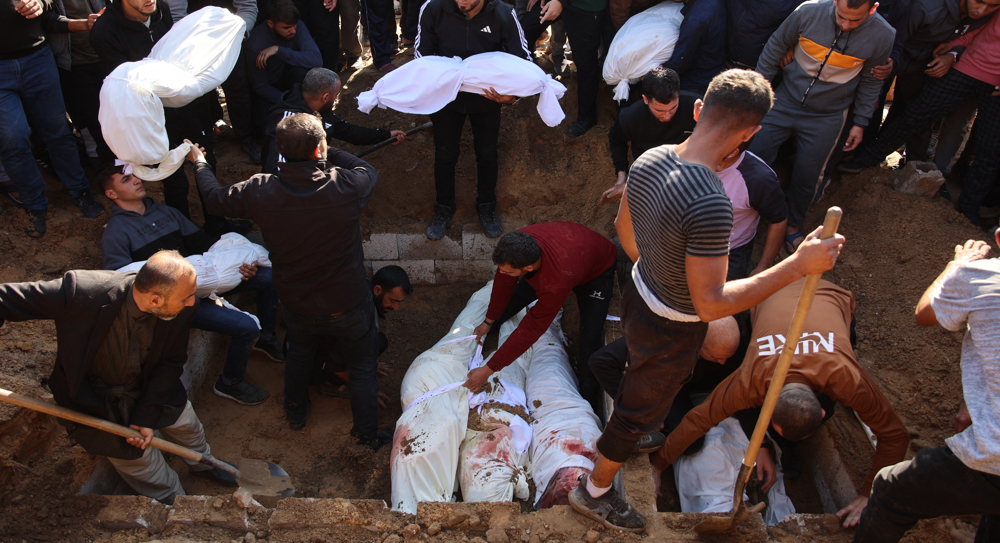



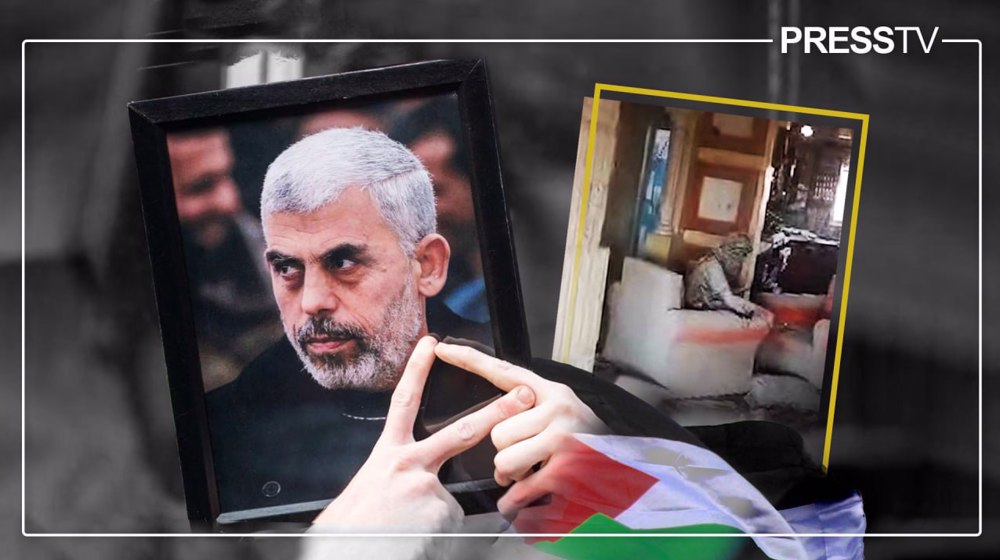
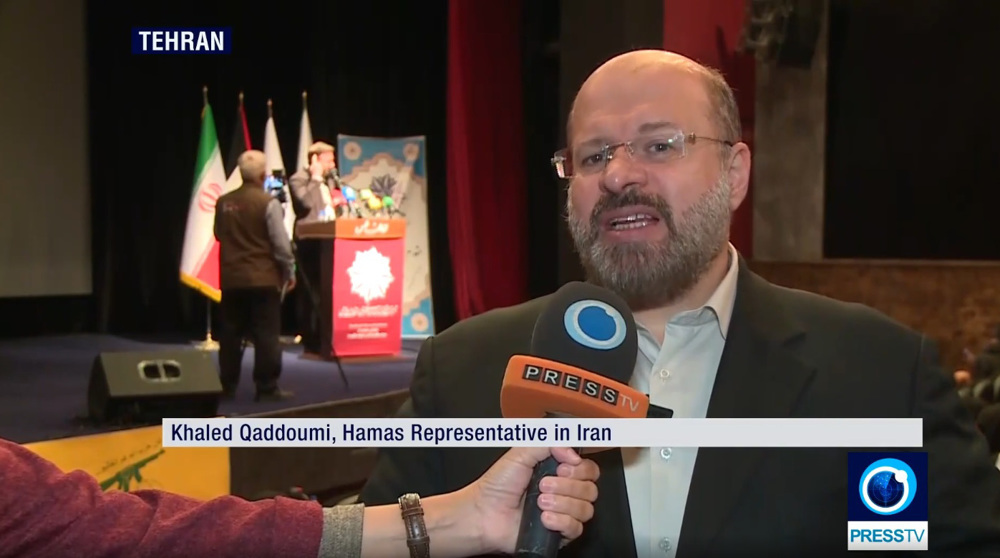
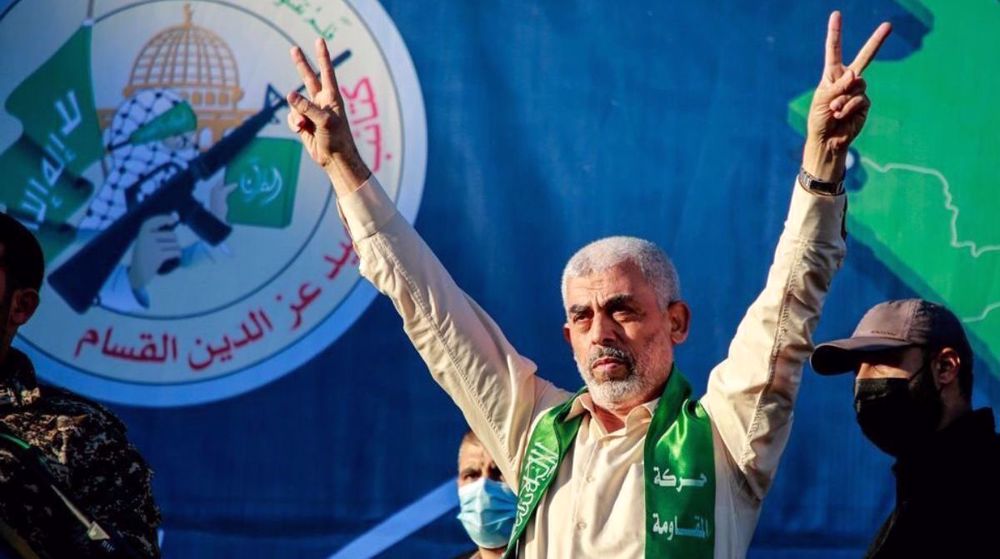
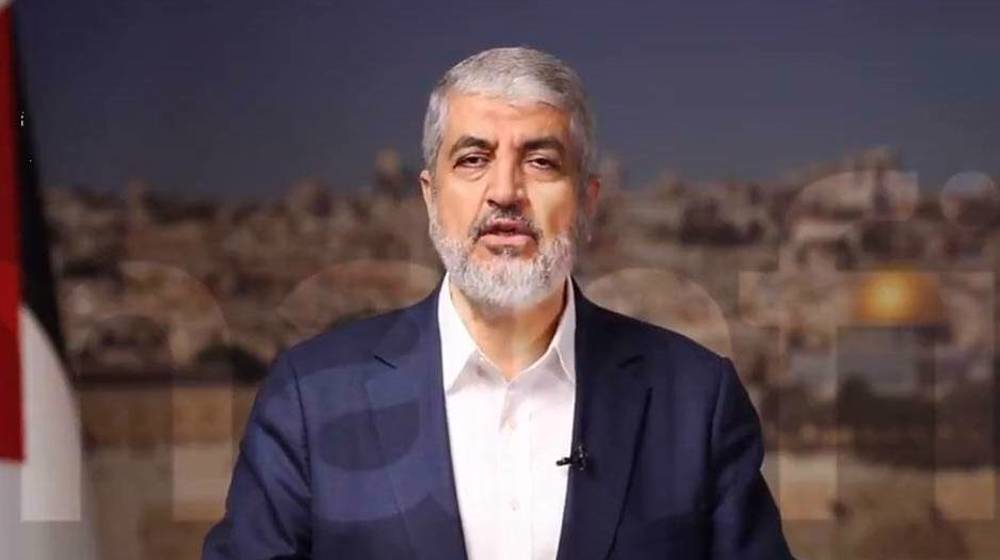
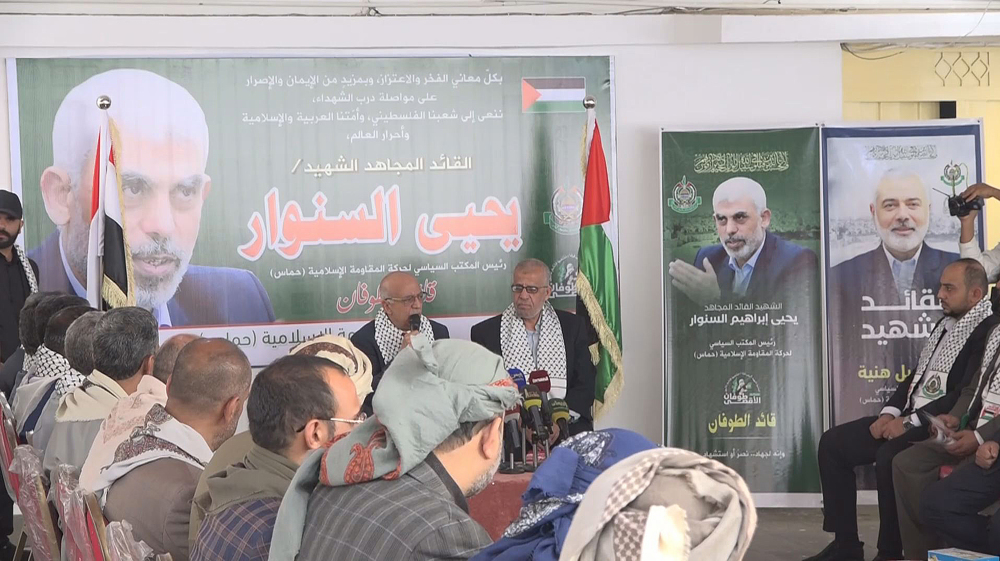

 This makes it easy to access the Press TV website
This makes it easy to access the Press TV website